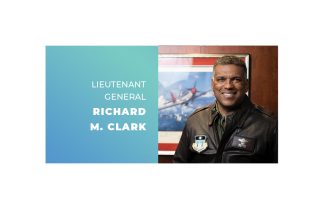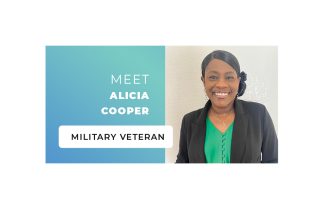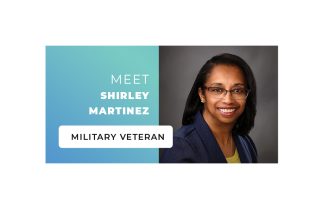Featured Sponsor & Nominee
Carlos Gonzalez
State Farm Insurance
Colorado Springs, C O
guardianofthecommunity.com
(719) 900-7431
An Interview With Carlos Gonzalez. jr.
First Sergeant Carlos Gonzalez, jr.
Veteran | 26 years in the U.S, Army
What did you do in the service?
I did several things. I started in transportation and transported anything that was put on a truck. When we were deployed in Desert Storm, we hauled anything from ammunition to war prisoners, but most of the time it was normally just cargo. When I was stationed in Germany for eight years, I did a lot of the transportation the first three or four years and then turned into more of an operations person from there. The second thing I did was construction engineer. As a part of what was called horizontal operations, we moved dirt, built the berms, and put up Hesco barriers which are large pods you fill up to protect the soldiers from debris and such. Then I became the first sergeant for the Colorado Army National Guard Engineer Unit: the 947th Engineer Company. I did that for about 15 months right before I retired. I was on active duty in the Army National Guard, Active Guard Reserve (A.G.R.), where you can potentially have two jobs at the time. When I was an engineer first sergeant, I was also a senior human resource manager or Sergeant in the state headquarters here in Colorado Army National Guard.
What was the biggest reason that led you to join the military?
Quite frankly, I joined because I was young and foolish. I got my girlfriend pregnant and needed to do something to take care of my family because I was raised to work and earn; that was the best way at the age of 18. I initially joined the military for the benefits, but then it turned into more love of country and love of service.
What was the biggest lesson that you learned while you were in the military?
The biggest lesson I learned is how to deal with people. The United States Army has all kinds of people from other countries that can join, so I learned how to deal with different people from different countries. I probably spent almost half of my time overseas which meant I got to deal with different cultures and ways of thinking. It all helped me be a more well-rounded leader because I understood that there are multiple perspectives on any topic.
Would you say the military helped you become a better person and leader?
Absolutely. The biggest benefit to me as a person, besides taking care of my family, was that it made me a stronger leader. If you want to get promoted in the military you have to go to different leadership academies at different stages in your career based on rank and time, and I took that very seriously. My military service has absolutely helped me become a strong leader outside of the service. Many people fail to realize that military entities were around before corporate entities, so military training gives you hundreds of years of experience and how to deal with people, build structures, and create strategic plans.
What is your perspective on patriotism?
My perspective on patriotism is there’s only one United States flag, and we’re one people that fall under the same flag. The United States was built over hundreds of years, but it was built with immigrants from all over the world. So patriotism is remembering that the United States is built of many people from different countries, cultures, and languages. Patriotism is remembering that you’re responsible for defending your country against enemies, both foreign and domestic. It’s not about fighting each other because of race, religion, creed, or gender. It is about loving your country, understanding that God made us one people, and that we need to understand that we are all different but that’s what makes the United States strong.
What was your experience transitioning from active duty to civilian life?
I had a unique experience because I got out of the military twice. The first time I got out, I was recruited out of the Army to work for J.B. Hunt Transportation as a transportation project manager. So it was a pretty good transition because I’ve always maintained the thought that eventually, my time is going to end, and I need to work with people in the community on their level, not just a military level. While I was doing that, I was in the Army National Guard Reserves, then I got activated and went to Iraq. I stayed on active duty when I came back, but I planned the possibility for transition almost 15 months out. My transition out of the military was extremely smooth because I qualified to become a State Farm agent well in advance of deciding to retire.
The biggest thing I would say is to prepare ahead. The military is not going to last forever. You have to know that it’s going to end at some point. I’d be lying If I didn’t say that there was some mental or psychological struggle because I really missed the military. While my transition was easy financially and physically, it was tough to let go of something that I did for so long. For those people who are going to transition out, know that you may go through that. It’s important to find ways to keep in touch with your military roots so that it’s not that painful, and that’s what I did. I volunteered with the military, did things in the community with the military, which helped me transition mentally much better than if I didn’t do all of that.
What are things you think someone should consider before they decide to serve their country?
I think they need to consider where the country is at the time that they’re joining. For example, a lot of people joined during 9/11 because they felt patriotism. They were angry at being attacked, and that’s how they made that intentional choice to join to help protect this country. Now, many other people joined and didn’t consider that and found themselves deployed and constantly away from home. With that, you also need to make sure your family is stable before you go in so that depending on current events, you might be gone a lot. Too many people join as a sort of knee-jerk reaction and then when they get into the military, they find out it’s not for them because they’re away from home a lot. That would be the biggest thing to consider.











